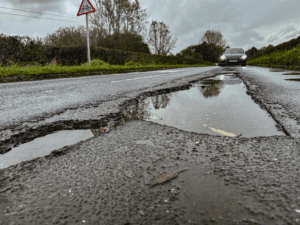What is the meaning of full coverage?
What is the meaning of full coverage?
Definition of full coverage : insurance that provides payment for all losses up to the limit of the policy without any deductions.
Does full coverage insurance cover?
What is fully comprehensive car insurance? Fully comprehensive car insurance policies offer the most coverage out of all your options for cover. It offers protection against injury and damage for you and your vehicle, as well as any third-parties involved in a claim.
When should you drop full coverage?
A good rule of thumb is that when your annual full-coverage payment equals 10% of your car’s value, it’s time to drop the coverage. You have a big emergency fund. If you don’t have any savings, car damage might leave you in a severe bind.
What is the difference between full coverage and collision?
The main difference between comprehensive and collision insurance is the scenarios they cover. Collision insurance pays for damage to your car if you hit an object or another vehicle, while comprehensive coverage pays for theft or damage from causes such as bad weather, fire or fallen trees.
What is an errors and omissions quote?
Errors and omissions insurance (E&O) helps cover the cost of a lawsuit if a client claims your work was inaccurate, late, or never delivered. It’s sometimes called professional liability insurance.
Who pays for errors and omissions?
To the company’s benefit, its errors and omissions policy is robust and covers such situations. The insurance company pays for the legal expenses involved in the court case against multiple companies. It also pays for any monetary damages rendered by the courts or settled in arbitration.
What is covered by errors and omissions insurance?
Errors and omissions insurance, also called E&O insurance, protects businesses against claims of mistakes, negligence, inadequate work, inaccuracies, misrepresentation or similar allegations. Your business should have E&O insurance if it provides services to customers for a fee. Dec 21, 2021
Who should purchase errors and omissions insurance?
Who Needs E&O Insurance? Errors and omissions insurance helps protect businesses from mistakes or errors in the professional services they provide. So, any small business that regularly gives their customers advice or offers services to clients should get this coverage.
Is professional liability insurance the same as errors and omissions?
What Is Errors & Omissions Insurance? Errors and omissions insurance is another name for professional liability insurance. So, you’ll still get the same coverage, despite the different names.
What is AD & O policy?
Directors & Officers (D&O) Liability insurance is designed to protect the people who serve as directors or officers of a company from personal losses if they are sued by the organization’s employees, vendors, customers or other parties.
What types of negligent acts might not be covered by the E & O policy?
If you or your employees intentionally engage in criminal or illegal acts, these are not covered by errors and omissions. Nor is discrimination, acts that pollute, or the financial insolvency of your agency. Make sure that all of your business or organizational names are covered under your E&O insurance. Apr 5, 2018
Which of the following will not be considered unfair discrimination by insurance?
Which of the following will NOT be considered unfair discrimination by insurers? Discriminating in benefits and coverages based on the insured’s habits and lifestyle. Insurers are also not allowed to cancel individual coverage due to a change in marital status.
What does Subject to e and o mean?
Errors and omissions insurance—””E&O”” for short—is a type of malpractice insurance coverage for real estate agents, brokers, and firms, so they can avoid having to pay legal costs out of pocket. It pays for claims that come about due to error, omission, or negligence related to an agent’s duties.
Who should get professional liability?
Any business that sells its expertise should consider professional liability insurance. Also known as errors and omissions (E&O) insurance, this coverage protects your company and your bottom line from customer claims of late, incomplete, or unsatisfactory work. Accusations like these can lead to costly lawsuits.
What is an insurance binder?
An insurance binder is a temporary contract between you and your insurer that proves you’ve purchased insurance coverage. It can provide you with full coverage while you await a more formal issuance. Jan 14, 2022






